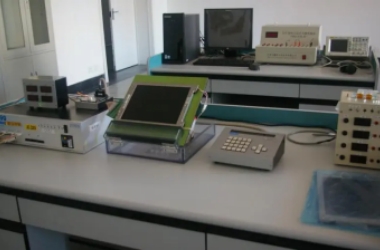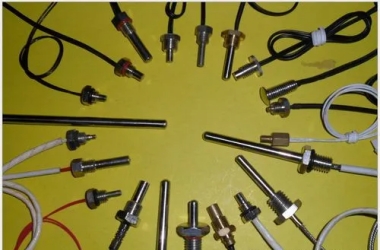DIODE MODULES (NON-ISOLATED TYPE)
| Features | Typical Application | PDDN-Notes |
|
|
|
MDG(AA) MDY(AA)
| Type | IF[AV] [A] | VRRM [V] | IRRM [mA] | IF[RMS] [mA] | IFSM [kA] | Datasheet | Offer |
|---|---|---|---|---|---|---|---|
| PDDN-MDx60 | 60 | 200-600 | 6 | 94 | 2.5 | Request | |
| PDDN-MDx80 | 80 | 200-600 | 8 | 126 | 3.4 | Request | |
| PDDN-MDx100 | 100 | 200-600 | 8 | 157 | 4.2 | Request | |
| PDDN-MDx130 | 130 | 200-600 | 12 | 204 | 5.5 | Request | |
| PDDN-MDx160 | 160 | 200-600 | 12 | 251 | 6.6 | Request | |
| PDDN-MDx200 | 200 | 200-600 | 15 | 314 | 8.2 | Request |
MDG MDY
| Type | IF[AV] [A] | VRRM [V] | IRRM [mA] | IF[RMS] [mA] | IFSM [kA] | Datasheet | Offer |
|---|---|---|---|---|---|---|---|
| PDDN-MDx50 | 50 | 800-1800 | 8 | 79 | 1.9 | Request | |
| PDDN-MDx100 | 100 | 800-1800 | 12 | 157 | 3.9 | Request | |
| PDDN-MDx150 | 150 | 800-1800 | 12 | 236 | 5.8 | Request | |
| PDDN-MDx200 | 200 | 800-1800 | 20 | 314 | 8 | Request | |
| PDDN-MDx250 | 250 | 800-1800 | 20 | 393 | 9.8 | Request | |
| PDDN-MDx300 | 300 | 800-1800 | 25 | 471 | 11.5 | Request |
Overview of Diode Module (Non-Isolated Type)
Diode modules (non-isolated) are components that integrate multiple diodes into circuit boards, control circuits, and casings. They have fast switching, efficient conductivity, and stable performance and are widely used in various electronic equipments. Its core is a diode chip that utilizes unidirectional conductivity to achieve rectification, detection, voltage stabilization, and switching functions. Non-isolated types require safety precautions, and the radiator must be maintained in operation. Applications include industrial automation, LED lighting, AC/DC conversion, medical equipment, and motor power supply, such as LED drives and motor control. In summary, non-isolated diode modules are critical electronic components that require attention to safety and heat dissipation.
Characteristics of Diode Module (Non-Isolated Type):
1. Fast switching: The diode module has fast switching characteristics, which can complete the current on and off in a short time, thus achieving efficient control of the circuit.
2. Efficient conductivity: The diode module has low power consumption during the conductivity process, which can quickly and effectively transmit current and improve the overall efficiency of the circuit.
3. Stability performance: The diode module has stable performance during operation, which can maintain its electrical characteristics for a long time and ensure the circuit operates regularly.
4. Multifunctionality: Diode modules can be applied in various circuits to achieve multiple functions such as rectification, detection, voltage regulation, and switching, providing flexibility for circuit design.
Application of Diode Module (Non-Isolated Type)

(Diode modules applied in the fields of optoelectronics and optical measurement)
1. Optoelectronic conversion: Diode modules have essential applications in optoelectronic conversion. For example, photodiodes can convert optical signals into electrical signals, so in optical communication systems, diode modules can be used for the design and implementation of photoelectric converters to achieve visual communication and data transmission. In addition, it can also be used for the design and implementation of photoelectric sensors, which can detect and measure optical signals through reasonable connection methods and parameter selection. It is widely used in the fields of optoelectronics and optical measurement.

(Diode modules applied to temperature sensors)
2. Temperature sensing: Diode modules also play an important role in temperature sensing. The design and implementation of temperature sensors can be achieved through the influence of temperature on diodes. In temperature measurement and control systems, diode modules can be used for the design and implementation of temperature sensors. Through reasonable connection methods and parameter selection, temperature measurement and control can be achieved.

Company Profile
PDDN Photoelectron Technology Co., Ltd.(sales@pddn.com) is a high-tech enterprise focusing on the manufacturing, R&D, and sales of power semiconductor devices. Since its establishment, the company has been committed to providing high-quality, high-performance semiconductor products to customers worldwide to meet the needs of the evolving power electronics industry.
It accepts payment via Credit Card, T/T, West Union, and Paypal. PDDN will ship the goods to clients overseas through FedEx and DHL, by sea, or by air. Please inquire if you want a high-quality Diode Module (Non-Isolated Type); we will help.
Payment Methods of Diode Module (Non-Isolated Type)
L/C, T/T, Western Union, Paypal, Credit Card etc.
Shipment of Diode Module (Non-Isolated Type)
By sea, by air, by express, as customers request.
Storage Conditions for the Diode Module (Non-Isolated Type)
1. Temperature requirements: The diode module should be stored in a dry and draughty environment, with a temperature between -40 ℃ and+125 ℃. Avoid exposure to high or low-temperature environments to combat adverse effects on the performance of the module.
2. Humidity requirements: The relative humidity should not exceed 60% to avoid moisture or oxidation of the module. Maintaining appropriate humidity is crucial for ensuring the long-term stability and performance of the diode module.
3. Lighting requirements: Avoid direct sunlight or prolonged exposure to intense light. Storing in a dark environment helps protect the module from performance degradation caused by light.
4. Anti-static: The diode module should avoid contact with stationary sensitive devices to prevent damage caused by static electricity. Appropriate anti-static measures should be taken during storage and handling.
5. Packaging requirements: Use moisture-proof, dust-proof, and shockproof packaging boxes to store diode modules to prevent mechanical damage or vibration from causing adverse effects.
6. Storage time: The storage time of the diode module should be a manageable length, generally not exceeding six months. After exceeding the storage time, quality testing should be carried out to ensure that its performance meets the requirements.
FAQ
Q1
What is the main working principle of a diode module (non-isolated type)?
Re:The working principle of the diode module (non-isolated type) is based on the unidirectional conductivity of the diode. When forward voltage is applied to the diode, it allows the current to pass through; When reverse voltage is used, it prevents the current from passing through. The module controls these switch actions to achieve functions such as rectification, detection, and voltage stabilization in the circuit.
Q2
What is the impact of the heat generated during the operation of a diode module (non-isolated type) on its performance?
Re:Heat generation can affect the performance of the diode module. During operation, diodes generate heat. If not dissipated in a timely manner, it may lead to an increase in temperature, which in turn affects their efficiency, stability, and lifespan.
Q3
How do you effectively dissipate heat to ensure the regular operation of diode modules (non-isolated)?
Re:To ensure regular operation, appropriate heat dissipation measures need to be taken. This includes using heat sinks, fans, or other cooling equipment, as well as selecting appropriate working environments and conditions, such as maintaining ventilation, controlling ambient temperature, etc.
Q4
What are the advantages and disadvantages of diode modules (non-isolated) compared to other types of electronic modules?
Re:Diode modules typically have the characteristics of simplicity, efficiency, low cost, and fast response. They are particularly suitable for situations that require fast switching and rectification. Non-isolated diode modules may pose safety hazards and have high requirements for thermal management. Compared to isolated modules, their anti-interference ability may be weaker.
Q5
How does the diode module (non-isolated) perform in different working environments (such as high temperature, low temperature, high humidity, etc.)?
Re:The performance of diode modules may vary in different working environments. For example, in high-temperature environments, modules may experience performance degradation or damage due to overheating; In low-temperature environments, their response speed and efficiency may be affected; In high-humidity environments, modules may experience short circuits or unstable performance due to humidity. Therefore, when selecting and using, specific working environment conditions need to be considered.
Opening Time
- Sunday – Friday: 09:00am – 10:30pm
- Saturday: 10:00am – 02:00pm
Contact Info.
- Email: sales@pddn.com
- Mobile: +86 18837951818
Contact Address
- Tongrun photoelectron, 3rd Floor, Nanshan Science Park, Nanshan District, Shenzhen, Guangdong, China
